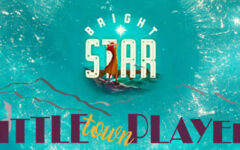 Two days ago Apple CEO Steve Jobs ignited a fire that is still burning in the music industry. DRM, Digital Rights Management, is all over the news thanks to an open letter he posted on the Apple.com website. Jobs called for an end to DRM for music sold online.
Two days ago Apple CEO Steve Jobs ignited a fire that is still burning in the music industry. DRM, Digital Rights Management, is all over the news thanks to an open letter he posted on the Apple.com website. Jobs called for an end to DRM for music sold online.
DRM is basically the means whereby labels and online retailers protect the music so that a customer who purchases a download can’t indiscriminately copy that file and share it with other people. Jobs argues that the technology doesn’t accomplish it’s intended goal at all, but does present needless obstacles to legitimate usage of purchased music.
The problem, of course, is that there are many smart people in the world, some with a lot of time on their hands, who love to discover such secrets and publish a way for everyone to get free (and stolen) music…DRMs haven’t worked, and may never work, to halt music piracy.
This results in new "secret" protections built into the DRM which results in music you purchase online being limited to only working with certain devices.
Music purchased from Microsoft’s Zune store will only play on Zune players; music purchased from Sony’s Connect store will only play on Sony’s players; and music purchased from Apple’s iTunes store will only play on iPods.
Many, including myself, think this should be changed.
What if I start out using iTunes, but then decide next year that some other service for purchasing music online is better for me, contains more of the music I like, etc? The problem is that the new service I switch to doesn’t support the iPod I’ve been using with iTunes so I have to buy a new device to use with the new service. But then all the music I previously purchased with iTunes and used on my iPod won’t work on the new device. You see the problem. As a consumer this is really frustrating.
Of course this only applies to music you purchase online. Anything you buy on CD and then subsequently "rip" to your computer has no DRM and can be easily loaded onto whichever device you like, or several of them if you so choose. And Jobs says this accounts for 97% of the music people have on their iPods anyway, so why hamper the remaining 3%?
Through the end of 2006, customers purchased a total of 90 million iPods and 2 billion songs from the iTunes store. On average, that’s 22 songs purchased from the iTunes store for each iPod ever sold.
Today’s most popular iPod holds 1000 songs, and research tells us that the average iPod is nearly full. This means that only 22 out of 1000 songs, or under 3% of the music on the average iPod, is purchased from the iTunes store and protected with a DRM. The remaining 97% of the music is unprotected and playable on any player that can play the open formats.
Jobs’ solution?
Imagine a world where every online store sells DRM-free music encoded in open licensable formats. In such a world, any player can play music purchased from any store, and any store can sell music which is playable on all players. This is clearly the best alternative for consumers…
Jobs goes on to say that 90% of music sales are still derived from the sale of physical CDs which are completely unprotected and that in his opinion, if tracks sold online as downloads were unencumbered with DRM that sales would rise in such a way as to benefit the entire industry.
Will the labels agree with him?
EMI seems to be testing the waters.
EMI is now offering a Norah Jones single in the open MP3 format, a monumental step for the label. The ultra-popular jazz pop singer is positioning the unrestricted single, “Thinking About You,” on Yahoo Music, a move that bucks longtime label thinking on protection.
Personally I agree with Jobs, David Goldberg of Yahoo!, and Techcrunch author Michael Arrington that DRM is ultimately destined for death.







